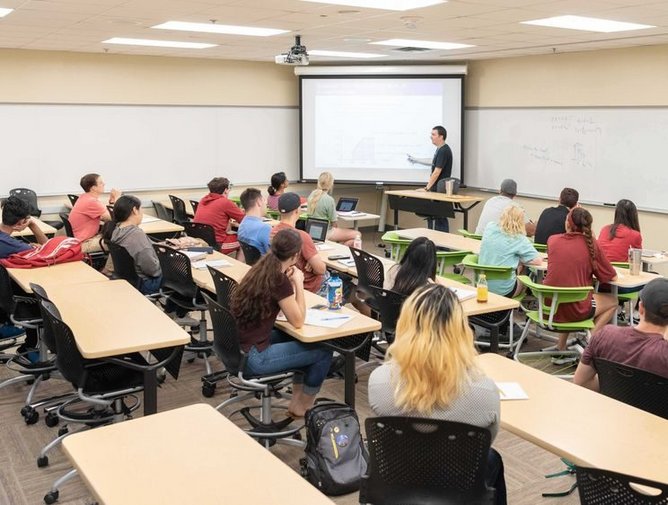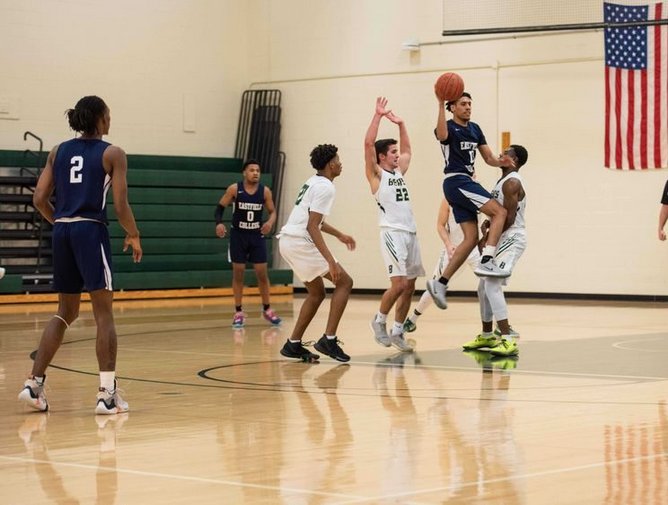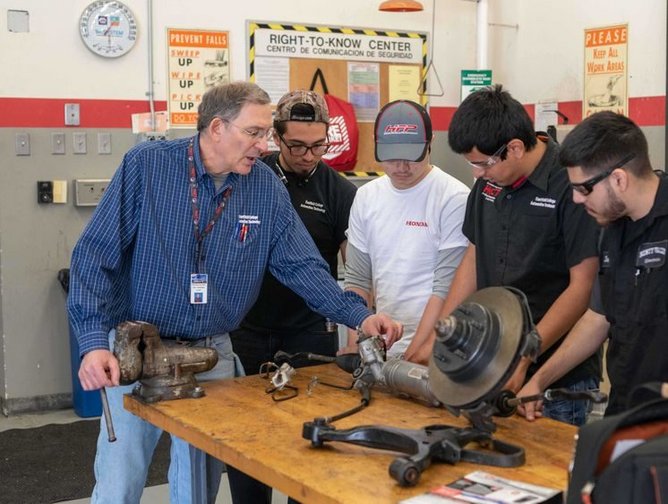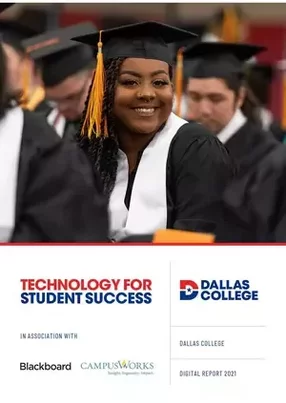Timothy J. Marshall is Chief Innovation Officer at Dallas County Community College, an educational institution which teaches over 80,000 students per term. It’s a role that involves more than just managing technology. “I'm involved with our college’s strategic partnerships with local workforce providers. Dallas is the home of many Fortune 500 Headquarters - in particular American Airlines, Southwest Airlines, Texas Instruments and AT&T . We have relationships with those organizations to help train their students, and we also work a lot with local service agencies. Many of our students are below the poverty line, so we help them with access to healthcare, food and transportation. We've created a lot of programs that use technology to provide those things - for instance, all of our qualified students now get a free bus and local light rail transportation pass.”
Marshall oversees a staff of around 290 people, and emphasizes that technology is in service of a greater goal. “Our team is working on things like infrastructure or databases or ERP systems. But we have to make sure we're not just doing technology for technology's sake. That’s why we have very specific goals for the institution with regards to student services and student success.”
Ensuring that technology does the most good requires a good grasp of data. Thanks to extensive experience in the education sector (and having been to community college himself), he understands how vital that is. “Institutional Research teams are typically where the data becomes actionable at a college or university. Though I don't have that oversight here, I work really closely with that department. We never know when we're going to need a specific piece of data, so my mindset is to grab hold of as much of it as possible. Even if I’m going to put it aside for a month or two months or a year, I'm going to take advantage of it eventually.”
The benefits of pursuing that volume of data are also felt directly by students, as Marshall explains. “We have relationships with over 350 hospitals, medical clinics and social services agencies. We share data and databases, which allows for our students to have a quick path to those services without having to retell their stories over and over again. That’s one of the things we’re doing that are driven by technology but also by knocking down barriers.”
In that same spirit, the college instituted the United States’ first blockchain student record system. “We decided that blockchain was the only technology that could allow us to move our student records into a secure environment that at the same time was not dependent on our institution. Our students have had access to their official transcript records via that system since July of 2019. We've now got the records of every student that has ever attended our college - 1.8 million student records in the chain total - and we update it daily.
The system was inspired by the failure of a major, national, private for-profit college, who had thousands of students in the Dallas area in the middle of degree work. “The Federal Department of Education asked our Chancellor to take these students on - because we had similar programs and we had capacity. But when that college closed down, their computer systems also closed down. So these students had no access to their records for almost six months. Our chancellor said to me that we couldn’t let the same thing happen to our students in a similar situation.”
The benefits of the technology are again keenly felt by students, not least in potential job opportunities. “We're now working with local workforce providers, says Marshall. “They want to have access to that information for recruiting purposes. It means they can query it - without knowing the student's name - based on how many students have passed a PERL programming class in the last two years, for instance. Then they can directly message the students, anonymously to say: ‘Hey, I might have a job for you.’
A number of trusted partners have been vital to the ongoing transformation. Implementation of a new Workday ERP system is beginning now, with Deloitte serving as the implementation partner. CampusWorks has provided consulting and services based on their expertise in all areas of the higher education space. “Their staff has a wide range of experience in higher education - not only technology professionals, but also as former librarians and former faculty and registrars and admissions and finance people,” says Marshall. “Whenever you embark on a large project, you need to have other, unbiased eyes looking at it. In the last year, they've provided us with a very specific service related to making sure our environment and our college was ready to go to a new ERP.”
A learning management system from Blackboard has also been introduced, offering students an online platform to gain access to instructional materials, discuss with faculty and complete assignments. That’s been especially important thanks to the ongoing COVID-19 pandemic. “It made it easier for us to transition a lot of students online when the pandemic hit,” says Marshall. “We were in the middle of the semester when we shut down all of our campuses. We had to take 60,000 students in two weeks and move them online. Because of the cloud nature of Blackboard, the platform was able to rather quickly scale up their systems to take on all those extra students.”
The pandemic has naturally impacted the organization, as it has with essentially all centers of education worldwide. In this case, it’s brought a number of projects to the front of the line. “One of them is changing from seven separate colleges into one college, with seven campuses. Up until March of this year, each one of those colleges ran their own IT shops. When we all came together and we were all working remotely, it was rather apparent that we should immediately centralize - as opposed to waiting for a year or two.”
With years of experience managing global teams in consulting firms, Marshall is confident in the efficacy of remote working, provided the technology is in place to support it. “We’ve had to condition a lot of software products so that they make sense for everybody. Virtual white boarding for agile development, for instance. I don't have that physical presence now, so we've become much more project oriented than we were in the past.”
Going forward, Marshall sees that remote trend replicated in the College’s infrastructure. “We are moving on from being a department that was primarily responsible for very physical, tangible assets within our data center. When March hit, I took a long look at our data center health. In the last year, we've had a fire, a flood and a gas leak in our data center. So I decided we're going to data center-as-a-service.” The College, then, is using the opportunity to modernize its technology for the benefit of students. “We’re migrating the services and applications that we have to a cloud infrastructure,” says Marshall. “That’s why we’ve renamed our infrastructure team to cloud and infrastructure.”




